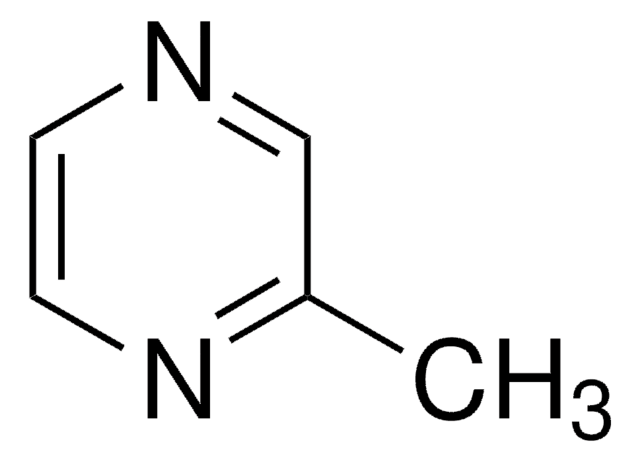Wichtige Dokumente
W332607
Aceton
≥99%, meets FCC analytical specifications
Synonym(e):
2-oxo propane, Dimethyl ketone, Propan-2-one, Pyroacetic acid
About This Item
Empfohlene Produkte
Biologische Quelle
synthetic
Qualitätsniveau
Qualität
Halal
Einhaltung gesetzlicher Vorschriften
FDA 21 CFR 173.210
FDA 21 CFR 175.105
FDA 21 CFR 175.320
FDA 21 CFR 176.180
FDA 21 CFR 176.300
meets analytical specifications of FCC
Dampfdichte
2 (vs air)
Dampfdruck
184 mmHg ( 20 °C)
Assay
≥99%
Form
liquid
Expl.-Gr.
13.2 %
Farbe
clear colorless
Brechungsindex
n20/D 1.359 (lit.)
pH-Wert
5-6 (20 °C, 395 g/L)
bp
56 °C/760 mmHg (lit.)
mp (Schmelzpunkt)
−94 °C (lit.)
Dichte
0.791 g/mL at 25 °C (lit.)
Anwendung(en)
flavors and fragrances
Dokumentation
see Safety & Documentation for available documents
Nahrungsmittelallergen
no known allergens
Format
neat
Organoleptisch
apple; ethereal
SMILES String
CC(C)=O
InChI
1S/C3H6O/c1-3(2)4/h1-2H3
InChIKey
CSCPPACGZOOCGX-UHFFFAOYSA-N
Suchen Sie nach ähnlichen Produkten? Aufrufen Leitfaden zum Produktvergleich
Anwendung
Haftungsausschluss
Signalwort
Danger
H-Sätze
P-Sätze
Gefahreneinstufungen
Eye Irrit. 2 - Flam. Liq. 2 - STOT SE 3
Zielorgane
Central nervous system
Zusätzliche Gefahrenhinweise
Lagerklassenschlüssel
3 - Flammable liquids
WGK
WGK 1
Flammpunkt (°F)
1.4 °F - closed cup
Flammpunkt (°C)
-17.0 °C - closed cup
Persönliche Schutzausrüstung
Eyeshields, Faceshields, Gloves
Hier finden Sie alle aktuellen Versionen:
Besitzen Sie dieses Produkt bereits?
In der Dokumentenbibliothek finden Sie die Dokumentation zu den Produkten, die Sie kürzlich erworben haben.
Kunden haben sich ebenfalls angesehen
Unser Team von Wissenschaftlern verfügt über Erfahrung in allen Forschungsbereichen einschließlich Life Science, Materialwissenschaften, chemischer Synthese, Chromatographie, Analytik und vielen mehr..
Setzen Sie sich mit dem technischen Dienst in Verbindung.




